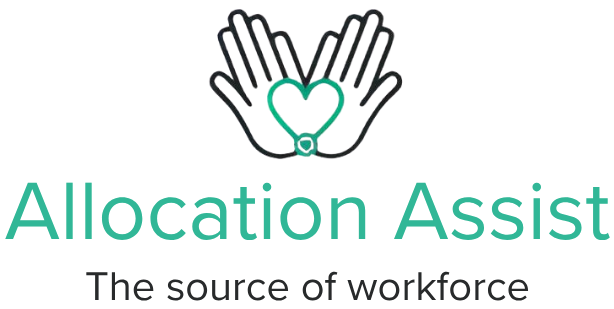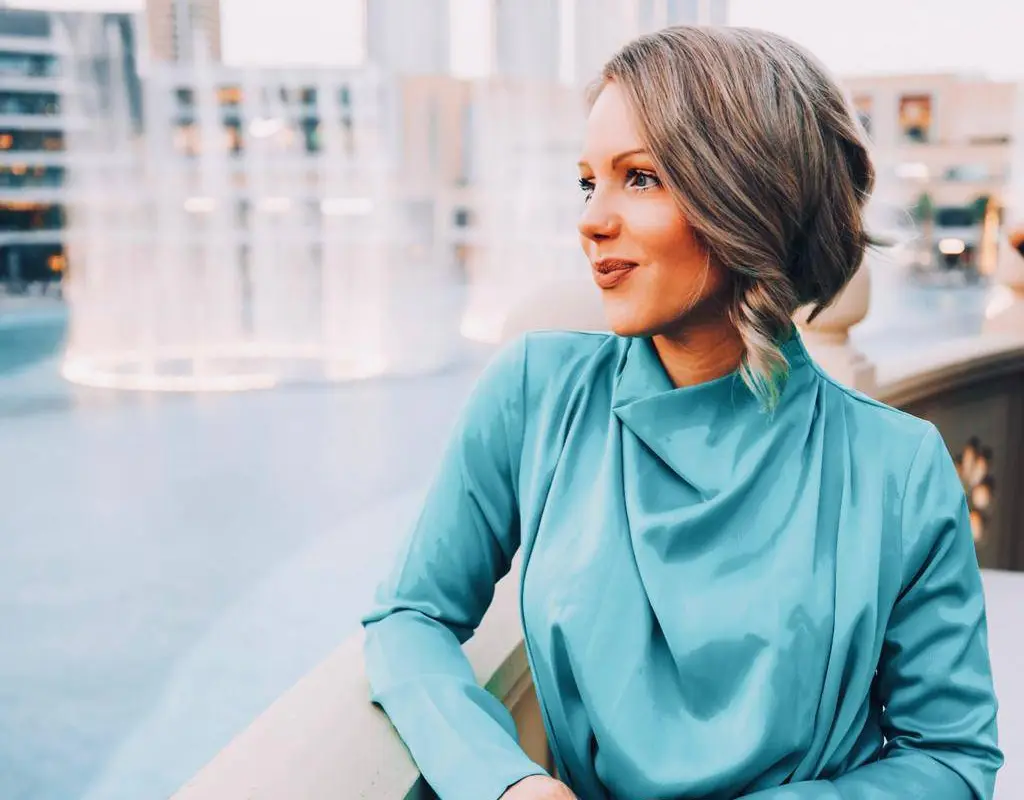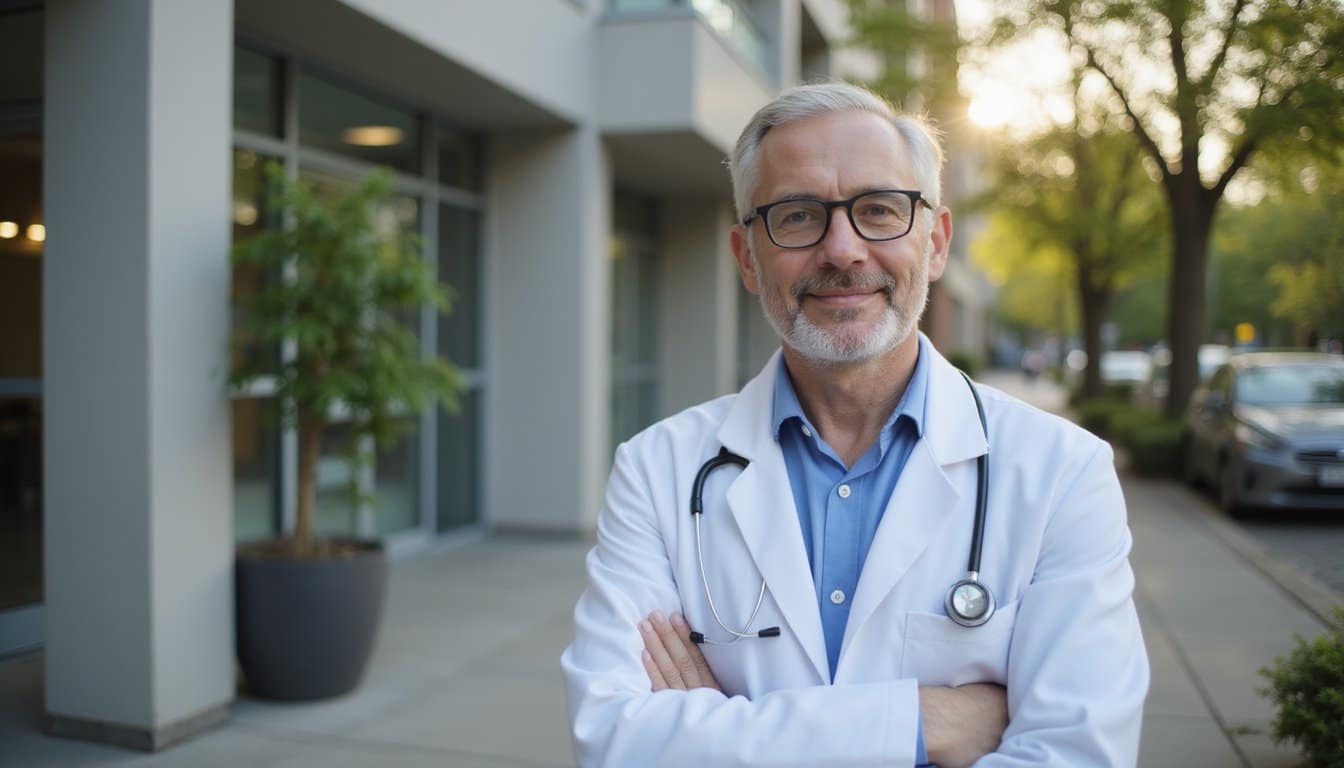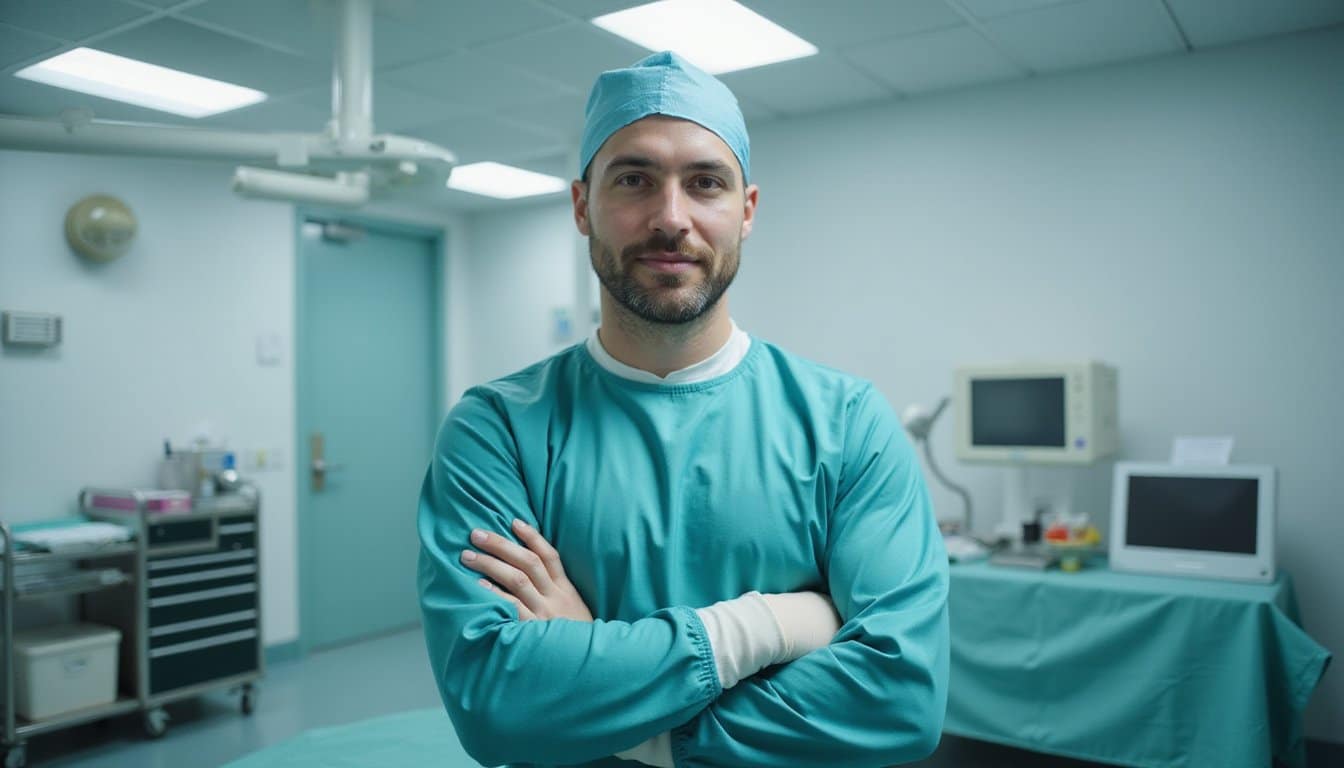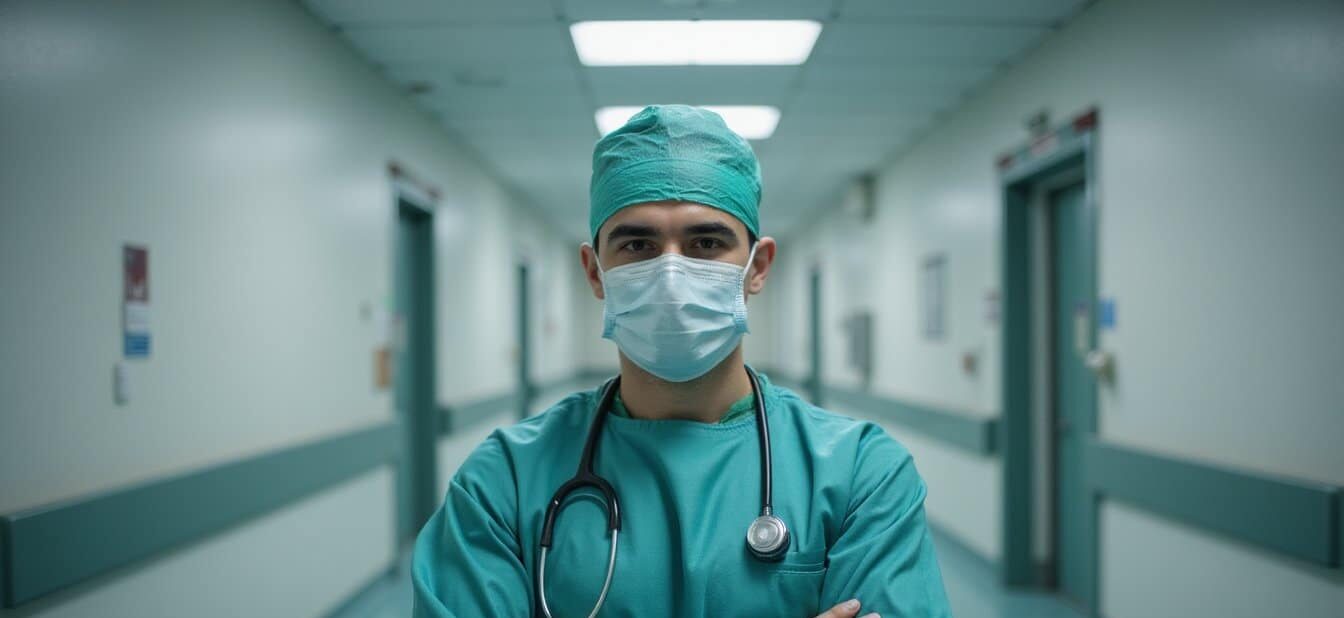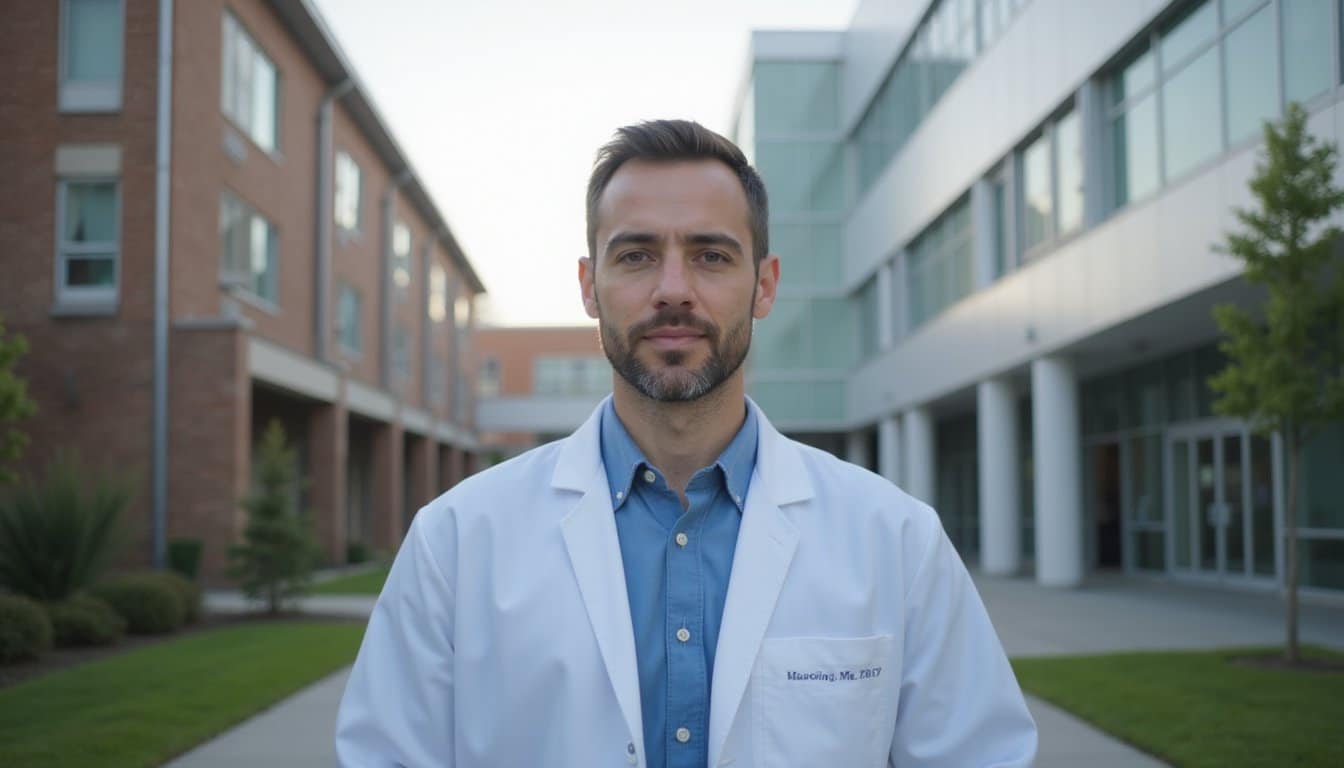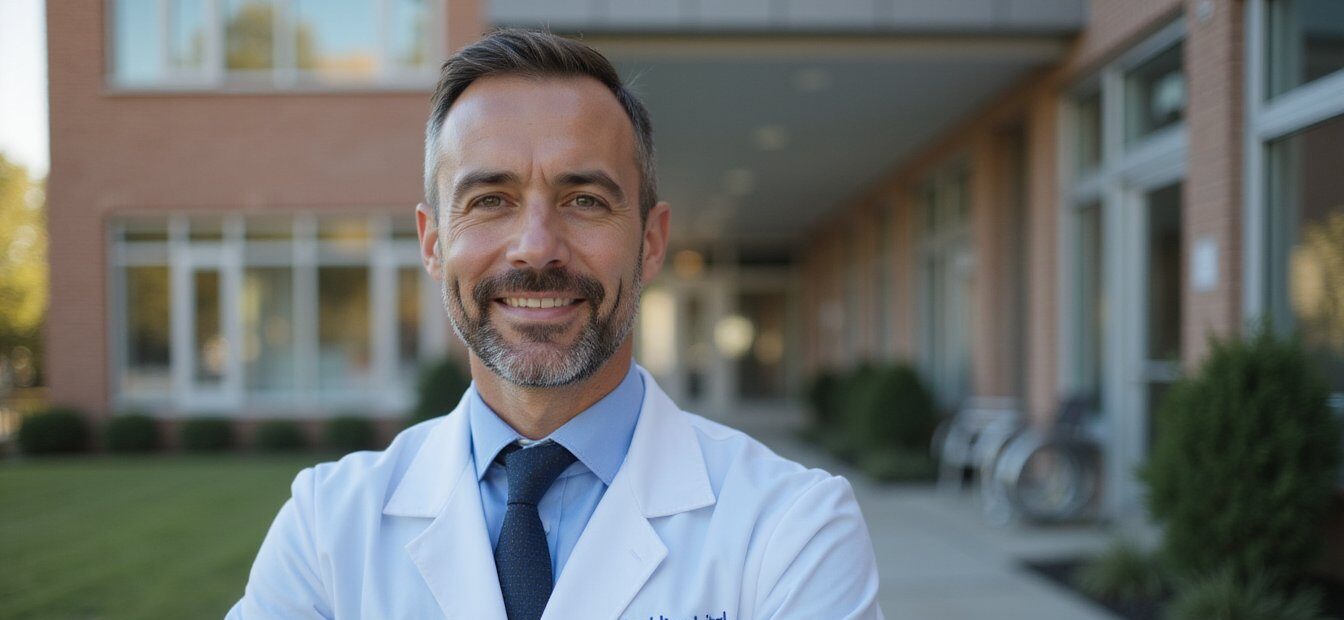Dubai’s emergence as a world-class healthcare hub stems from five key success factors: strategic infrastructure growth with 4,922 facilities, professional workforce development featuring 58,788 healthcare workers, digital innovation ranking 4th in Smart Cities, robust regulatory frameworks, and thriving medical tourism serving 630,000+ international patients annually. You’ll find Dubai’s healthcare transformation demonstrates how targeted investment and smart planning can revolutionize a region’s medical ecosystem while generating substantial economic returns.
Strategic Infrastructure Growth Drives Healthcare Excellence
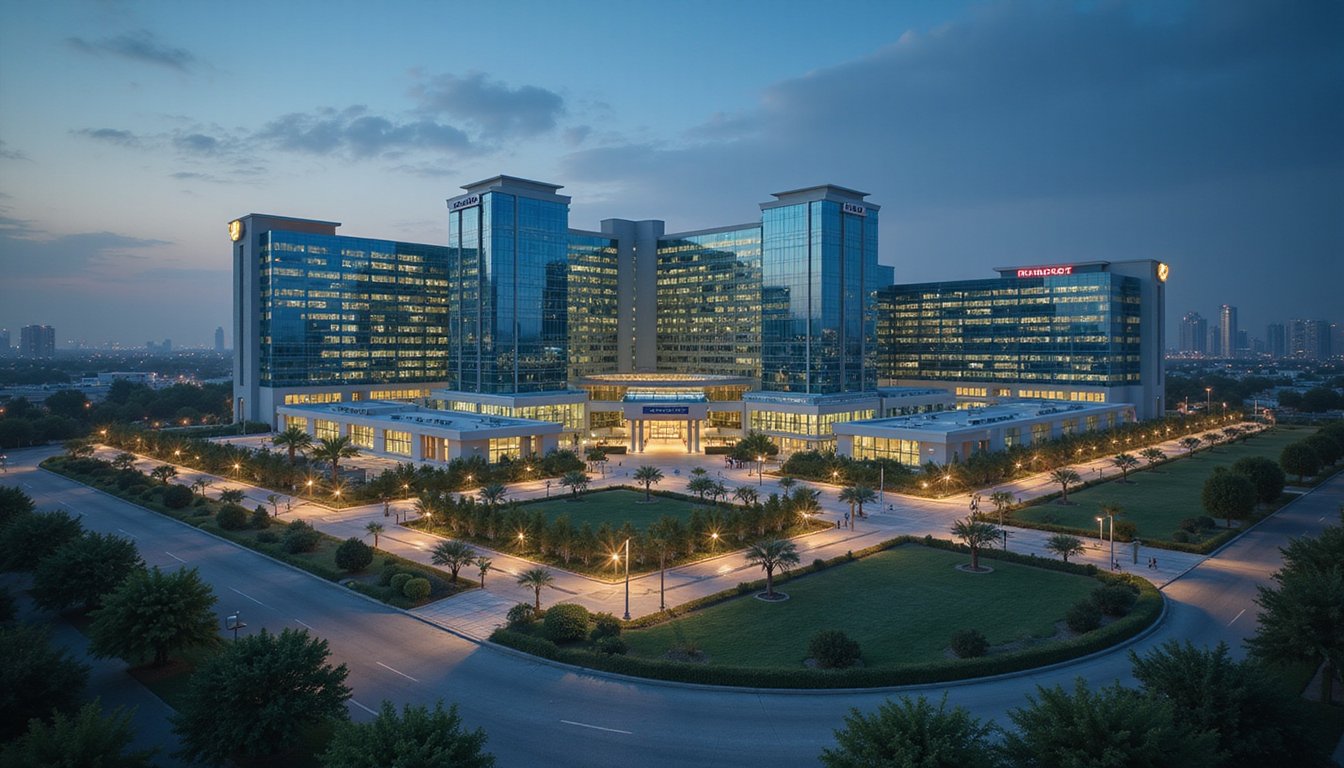
Dubai’s healthcare infrastructure has undergone remarkable expansion, with facilities increasing by 43% from 3,431 in 2019 to 4,922 in 2023. You’ll find enhanced service accessibility through an extensive network of 53 hospitals, 58 day-care surgery centers, and 2,315 specialized outpatient clinics strategically distributed across the emirate. The sector has attracted a highly skilled workforce, with healthcare professionals increasing from 39,548 in 2019 to 58,788 in 2023. This robust growth aims to address the significant gaps projected in healthcare capacity by 2030, including the need for 1,590 additional acute beds. The market’s strength is reinforced by an impressive USD 22 billion healthcare sector valuation in 2024.
Healthcare partnerships between government and private sectors have proven essential, with private funding contributing 47% (AED21.4 billion) of Dubai’s healthcare expenditure in 2022. The DHCC Phase 2 development exemplifies this collaboration, investing AED 1.03 billion to add 22 million square feet of medical space. Under the Dubai 2040 Master Plan, you’ll see a 25% expansion in health facility land allocation, ensuring the infrastructure keeps pace with the projected population growth to 5.8 million.
Professional Workforce Development and Diversity
While expanding its physical infrastructure, Dubai has achieved remarkable growth in its healthcare workforce, with professionals increasing by 49% from 39,548 in 2019 to 58,788 in 2023. This expansion includes 13,082 physicians, 22,960 nurses/midwives, and 18,407 allied professionals serving across 4,922 healthcare facilities. The private sector dominates healthcare delivery, with private facilities operating 60% of facilities and serving most of Dubai’s population.
Dubai’s talent retention strategy centers on the Golden Visa program, which now includes all physicians, with approximately 2,000 holders in Dubai Healthcare City alone. You’ll find a strong emphasis on multilingual recruitment to support medical tourism, with professionals trained in AI literacy, robotics, and digital health. The workforce reflects Dubai’s commitment to diversity, evidenced by a 97.2% female participation rate and recruitment practices aligned with the emirate’s global outlook. The healthcare sector has experienced a significant +12% growth in green jobs, reflecting the industry’s shift toward sustainable practices and environmentally conscious healthcare delivery.
Digital Innovation and Technological Advancement

Leading the Middle East’s digital health revolution, Dubai has integrated cutting-edge technologies across its healthcare ecosystem, as evidenced by its 4th-place ranking in the IMD Smart City Index 2025.
You’ll find AI Integration transforming healthcare delivery through smart diagnostics, predictive analytics, and AI-guided robotic surgeries. Blockchain Security guarantees tamper-proof electronic health records while streamlining insurance processes through smart contracts. The city’s Telemedicine Expansion, exemplified by the “Doctor for Every Citizen” platform, targets a 30% reduction in hospital visits while extending care to 12.22% of non-urban residents. IoT Optimization powers smart hospitals with digital twins, connected infrastructure, and remote monitoring capabilities, achieving an 84.5/100 satisfaction rate for online services. This digital transformation aligns perfectly with Dubai’s National Innovation Strategy and Healthcare Vision 2031. The implementation of smart hospital systems demonstrates Dubai Health Authority’s commitment to creating a fully connected, data-driven healthcare ecosystem. The city’s commitment to sustainability is evident through its green hospitals, which have achieved a 10% reduction in energy costs through AI-driven resource management. The transformation serves as a global benchmark for other nations seeking to modernize their healthcare systems through technology integration.
Robust Regulatory Framework and Quality Assurance
Through the establishment of extensive regulatory bodies and frameworks, the emirate has created a robust healthcare governance system that maintains exceptional quality standards across its medical sector. You’ll find a thorough regulatory compliance structure through the Dubai Health Authority (DHA) and Dubai Healthcare City Authority (DHCA), working in tandem to oversee healthcare delivery. Law No. (16) of 2024 grants these bodies executive and financial autonomy to ensure optimal regulatory oversight. The DHA consistently works to develop and enforce unified guidelines for all healthcare facilities in Dubai. The authority provides dedicated support through their 24/7 agents to assist healthcare practitioners with regulatory compliance.
Key components of Dubai’s quality assurance framework include:
- Implementation of the Sheryan System for streamlined digital licensing and registration
- Regular clinical audits and inspections to maintain strict quality standards
- Dedicated health tourism governance ensuring world-class care for international patients
The recent Federal Law No. 6/2023 has further strengthened this framework by standardizing UAE-wide healthcare regulation and expanding the scope of regulated healthcare roles, positioning Dubai as a trusted global healthcare destination.
Economic Growth Through Medical Tourism and Global Events
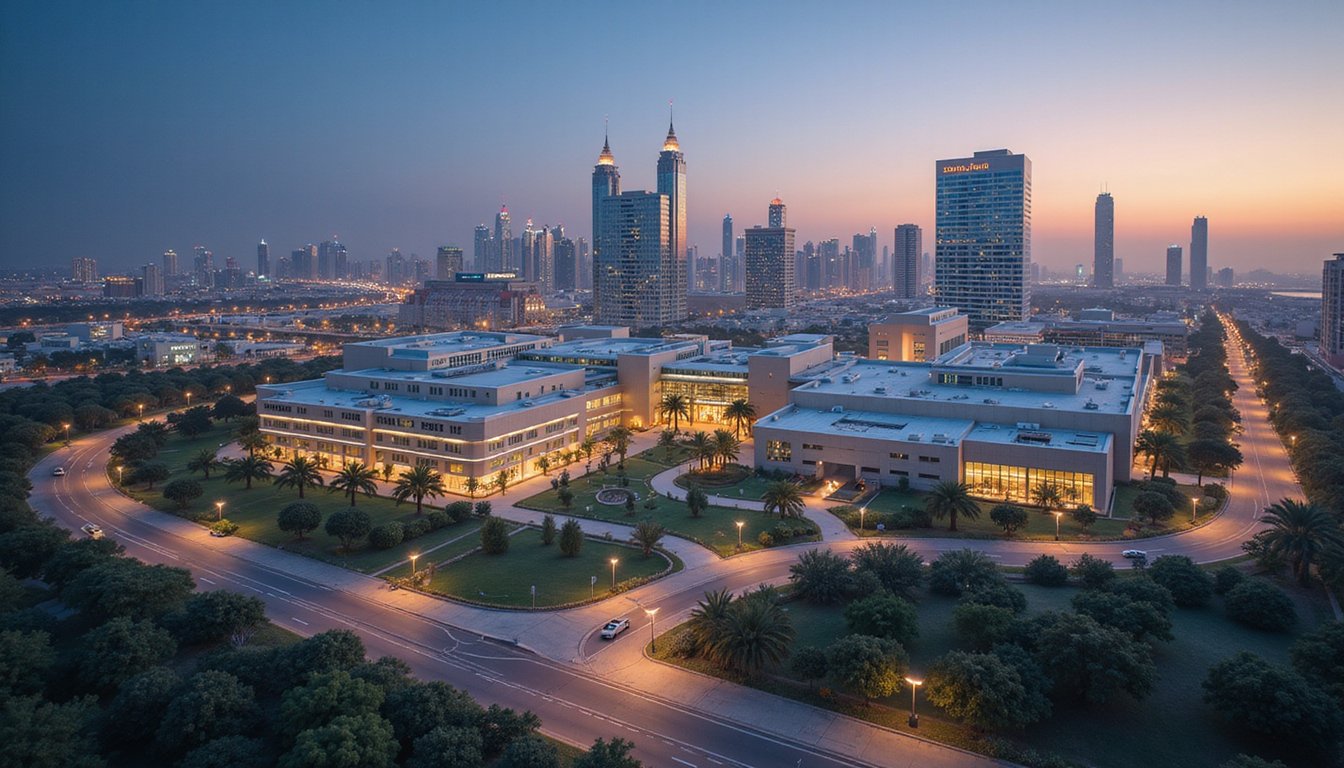
Dubai’s transformation into a global medical tourism powerhouse has generated substantial economic dividends, with over 630,000 international patients visiting in 2023 and market projections reaching $7.5 billion by 2026. You’ll find competitive pricing for specialized treatments attracting patients worldwide, while global events amplify the emirate’s healthcare prominence. The integration of smart health technologies has become a key differentiator in attracting international patients seeking cutting-edge medical care. The presence of Dubai Healthcare City provides a centralized medical hub that enhances the emirate’s reputation for excellence. The rising trend is supported by a robust tourism infrastructure with 154,016 hotel rooms available across the city in 2024.
| Treatment Type | Cost Savings vs West | Key Attractions |
|---|---|---|
| Cosmetic Surgery | 40-60% | Advanced Technology |
| Fertility Care | 30-50% | Multilingual Staff |
| Dental Procedures | 50-70% | Luxury Recovery |
| Elective Surgery | 35-55% | Bundled Pricing |
| Wellness Programs | 25-45% | Hospital Networks |
The synergy between medical tourism and global events has strengthened Dubai’s position, with initiatives like DXH targeting 500,000 annual patients by 2030 while maintaining an 82% hotel occupancy rate and generating AED 186 billion in tourism revenue.
Frequently Asked Questions
What Are the Average Wait Times for Specialist Appointments in Dubai?
You’ll typically wait several weeks for specialist appointments in the public healthcare system, though appointment duration varies by specialty. Private clinics offer faster access, often within days, but at higher costs. Specialist availability differs greatly between sectors; public facilities experience longer waits due to high demand, while private practices maintain shorter scheduling windows. Wait times can extend further for niche specialties like oncology or rare condition specialists.
How Do Healthcare Costs in Dubai Compare to Other Global Medical Hubs?
When you compare healthcare costs globally, you’ll find Dubai’s rates are relatively high. You’ll pay around 6,000 AED (£1,300) annually for basic individual coverage, while family policies start at 20,000 AED. Healthcare affordability is challenging, with a 12% cost increase projected for 2025, outpacing global averages. While these rates exceed many Western nations, they’re balanced by high-quality care and shorter wait times for specialist appointments.
Which Medical Specialties Attract the Most International Patients to Dubai?
You’ll find that dentistry and dermatology lead international patient demand in Dubai, with 29% and 27% market share respectively. Orthopedics attracts 33% of Asian patients, while ophthalmology serves 37% of Arab/GCC visitors. Recent cardiology innovations and advanced cosmetic surgery procedures are rapidly growing segments. Fertility treatments draw significant interest, particularly from Asian patients (54%). These specialties benefit from state-of-the-art facilities and internationally accredited medical teams.
What Insurance Coverage Options Are Available for Medical Tourists Visiting Dubai?
You’ll find several insurance policies tailored for medical tourism needs. Your options include medical travel insurance with coverage limits starting at $100,000 USD for emergencies, short-term health plans with flexible 1-12 month durations, and extensive packages covering pre-negotiated treatment rates. You can also combine travel insurance with local health plans for extended care. Most policies offer emergency evacuation, hospitalization coverage, and 24/7 assistance hotlines for your peace of mind.
How Does Dubai Handle Language Barriers in Its Healthcare Facilities?
You’ll find extensive language support in healthcare facilities through multilingual staff and professional translation services. Medical interpreters are available 24/7, either on-site or via telehealth platforms, ensuring clear communication during critical care moments. You can access bilingual patient materials and real-time translation apps for basic interactions. Staff undergo cultural competency training to address both linguistic and cultural nuances, while certified medical interpreters bridge complex communication gaps during treatments and consultations.
